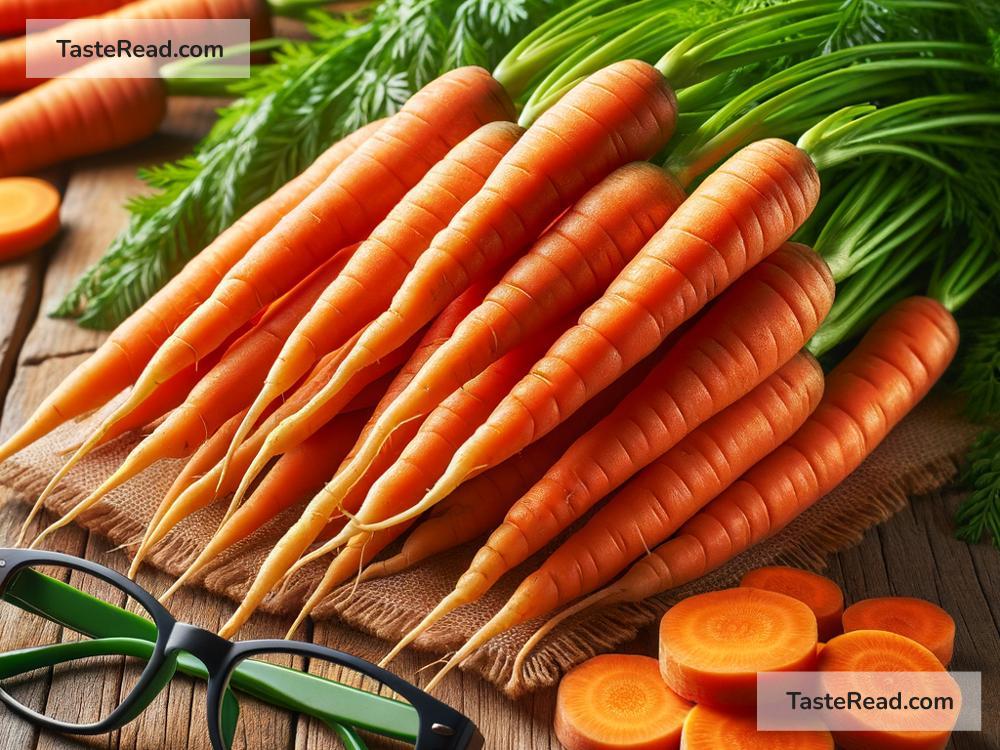Can Carrots Improve Your Eyesight?
When you think about healthy eyes, you might immediately picture carrots. For many years, we’ve been told that eating carrots can improve our eyesight. But is this actually true, or is it just a myth? Let’s take a closer look at the science behind carrots and their effect on our vision.
Why Are Carrots Linked to Eyesight?
The idea that carrots are good for your eyes has been around for decades. This belief partly comes from the fact that carrots contain a vitamin called vitamin A, which plays a crucial role in maintaining healthy vision. Carrots are rich in beta-carotene, which the body converts into vitamin A. Without enough vitamin A, you can develop vision problems, such as night blindness, where it’s difficult to see in low light.
Another reason carrots are associated with eyesight dates back to World War II. During the war, British pilots used radar technology to locate enemy planes at night. To keep the radar technology a secret, the British government spread the rumor that their pilots had extraordinary eyesight because they ate a lot of carrots. The story stuck, and many people still believe it today.
The Science Behind Carrots and Vision
While carrots do contribute to eye health, they aren’t magic food that will instantly restore eyesight or prevent all eye problems. Vitamin A is essential for vision because it helps make a protein called rhodopsin, which allows us to see in dim light. Without enough vitamin A, rhodopsin cannot function properly, and your night vision may suffer.
However, it’s important to note that eating carrots alone cannot correct vision problems caused by other issues, such as nearsightedness (difficulty seeing far away) or farsightedness (difficulty seeing close objects). These problems are related to the shape of your eye, not your vitamin intake, so carrots won’t help much in these cases.
How Much Vitamin A Do You Need?
The good news is that you don’t need to eat a mountain of carrots to get enough vitamin A. A medium-sized carrot contains about 509 micrograms of vitamin A, which is more than half the daily recommended amount for most adults. Other foods, such as sweet potatoes, spinach, kale, and red peppers, are also rich sources of vitamin A. Eating a variety of colorful vegetables is a great way to ensure your eyes get the nutrients they need.
Can Carrots Improve Poor Eyesight?
Many people wonder if eating carrots will improve blurry vision or help them see better without glasses. Unfortunately, the answer is no. Poor eyesight, like nearsightedness or farsightedness, is usually caused by the physical shape of the eye or the lens inside it. These issues are genetic or age-related, and carrots won’t fix them.
However, if your poor eyesight is caused by a vitamin A deficiency, eating carrots could help improve your vision. Vitamin A deficiency is more common in developing countries, where people may not have access to a balanced diet. In severe cases, a lack of vitamin A can lead to complete blindness. For people with such deficiencies, carrots and other vitamin A-rich foods can make a big difference.
Other Benefits of Carrots for Eye Health
Carrots aren’t just a great source of vitamin A—they also contain other nutrients that can benefit your eye health. For example, carrots are rich in antioxidants like lutein and zeaxanthin, which help protect the eyes from damage caused by harmful UV rays. These antioxidants may also reduce the risk of age-related macular degeneration—a condition that can lead to vision loss as people age.
Carrots also contribute to overall health in other ways. They’re low in calories, packed with fiber, and good for your skin and immune system. Including carrots in your diet is a smart choice for your overall well-being.
The Bottom Line
So, can carrots improve your eyesight? The answer is: yes and no. Carrots are great for maintaining healthy eyes because they provide vitamin A, which is essential for vision. Eating carrots can help prevent vision problems related to vitamin A deficiency, such as night blindness. They also contain antioxidants that may protect your eyes from certain age-related issues.
However, carrots won’t change your physical eyesight or eliminate the need for glasses or contact lenses. If you have common vision problems like nearsightedness or farsightedness, carrots won’t magically fix them. That said, adding carrots and other vitamin-rich foods to your diet is still a good idea for your eye health and your overall health.
In the end, carrots are a tasty and healthy food that can support good vision—but don’t expect miracles. As with most health advice, balance is key. Try to eat a variety of fruits and vegetables, exercise regularly, and visit your eye doctor for checkups. Taking care of your eyes is about more than just carrots—but they’re a great place to start!


